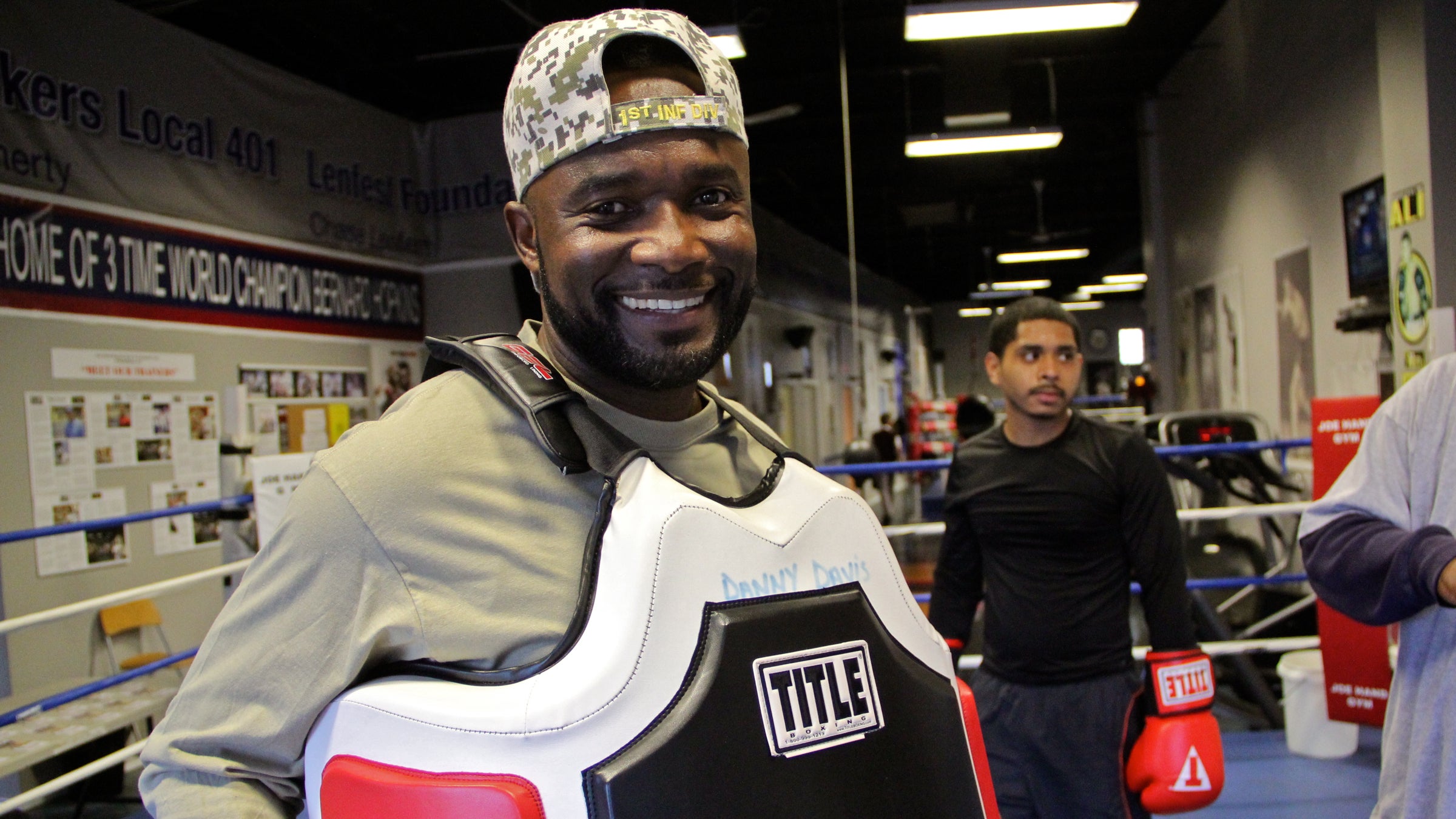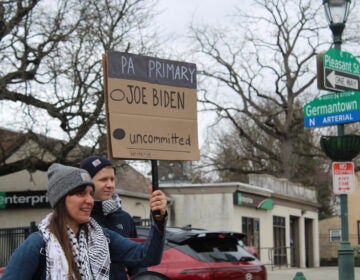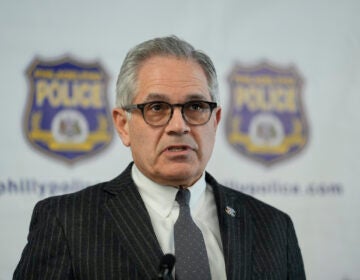Philly vet finds refuge from IEDs in boxing ring
Listen
Veteran Wendell Chavis finds his joy at Joe Hand boxing gym, where he helps to train young fighters like Bryan Roque (right). (Emma Lee/WHYY)
To say that Wendell Chavis likes training fighters at Philadelphia’s Joe Hand Boxing Gym would be quite an understatement.
He absolutely loves it.
Even when he’s serving as a human punching bag, the Army veteran can’t stop grinning. It’s truly his place of peace.
“It feels like I got no worry in the world, but once I leave out this ring back out into the world it’s a whole different ball game, but in here I’m free,” said Chavis.
Five days a week, the 48-year-old drives down from Northeast Philadelphia to help train amateur boxers young and old — for free.
“I get a lot out of it you know what I mean? Cause it helps me from keeping my mind from off the stuff that I went through. And as long as I can help one person, I’m good,” he said.
Chavis suffers from PTSD. The disorder can wreak havoc on his mood and sleep. He also fights through the pain of a Traumatic Brain Injury and is on disability.
“I’m a 100 percent service connected,” said Chavis. “That’s my income that I get.”
Chavis spent a year with the First Infantry Division in Baiji, Iraq, at the height of the war. It was a place known for insurgent attacks. Chavis helped lead a convoy tasked with removing IEDs — improvised explosive devices.
“They called us IED hunters,” he said. “We go out and hunt for IEDs, to destroy IEDs so that the U.S. convoys can travel down a certain route to take supplies to other bases throughout Iraq.”
On several occasions, Chavis was thrown from his vehicle during these treacherous assignments.
He remembers only parts of the missions that landed him in the hospital, almost always with a concussion.
“There were numerous bombs set prior to us getting to the one we were supposed to get to and one of them bombs had caught our vehicle and it threw me out of my seat in the gunner hatch and I was unconscious and blacked out,” said Chavis.
Chavis retired in 2006 after 25 years in the military.
Afterwards, he went back to bad habits, mostly drinking and gambling. For a time, he was homeless.
With the help of the Department of Veterans Affairs in Philadelphia, though, Chavis said he’s come a long way over the last few years. But he still feels like he has a ways to go.
“Fifty percent I’d say, I feel like myself. I’m not quite there yet,” he said.
Chavis said his PTSD is largely under control, but there are still times when he finds himself scanning the horizon for danger.
“When I’m driving, a lot of debris and stuff in the streets, you know I’m thinking that could be some type of explosive or something,” he said.
On Veterans Day, Chavis typically grabs dinner with some of his old military friends, those who are still alive. Other than in the boxing gym, it’s perhaps one of the only times he feels at ease.
Still, he said, nothing compares to being around the smell of sweat, the sound of gloves hitting pads and flesh.
It’s the only time he said he feels like the leader he was in the Army.
WHYY is your source for fact-based, in-depth journalism and information. As a nonprofit organization, we rely on financial support from readers like you. Please give today.





